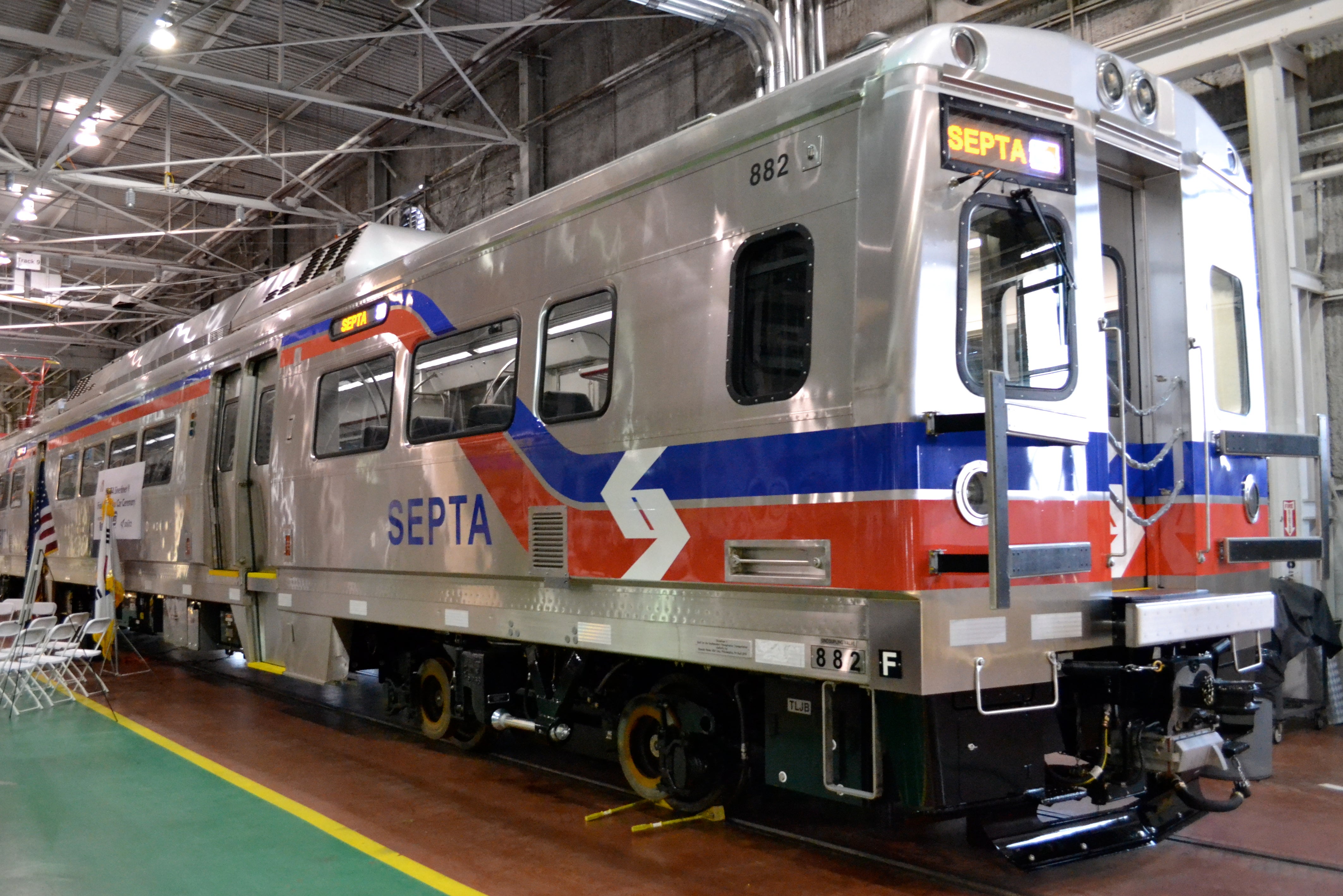SEPTA to reduce regional rail service through August due to train defect

It may be hard for some regular riders to believe, but SEPTA’s regional rail service is about to get even more packed, thanks to a train defect that has taken nearly a third of SEPTA’s regional rail fleet out of service.
Starting Tuesday morning, SEPTA will run a modified version of its Saturday schedule on most of its regional rail lines. That means fewer trains running: Some stations will only see a train every 30 minutes during the morning and evening peaks, and others will wait an hour between trains.
SEPTA’s assistant general manager, Ron Hopkins, said the agency will post updated schedules on it’s website once they are ready, likely sometime after 5 p.m. Monday.
The short Cynwyd Line, which spurs off the Thorndale Paoli line, will have no train service. Shuttle busses will be provided as an alternative.
To compensate, SEPTA encourages riders to take other transit options. The Norristown High Speed Line (NHSL) runs parallel to the Paoli line for a good stretch and will double up cars. Hopkins also said that Amtrak will increase capacity on its Keystone line, which runs to Harrisburg on the same tracks as the Paoli/Thorndale line.
SEPTA is also extending rush hour service on its Broad Street Line, Market Frankford Line, NHSL and the Routes 101 and 102 trolleys. Morning rush is extended to 10 a.m., and evening rush will run between 3 p.m. and 7 p.m.
SEPTA secured parking at the sports stadiums and near the Frankford Transportation Center for passengers who might drive to those stations to take the subway instead of Regional Rail.
SEPTA will offer a credit to customers who bought weekly or monthly Trailpasses that they will no longer use. Details of that plan are still being finalized.
Riders who board at stations closest to Center City will be the hardest hit: Once a Regional Rail train hits maximum capacity, it will skip stops until arriving at Suburban Station, Jefferson Station or 30th Street Station.
The agency will eventually deploy extra buses to suburban routes to help compensate for the reduced rail service, but that won’t begin on Tuesday. SEPTA wants to deploy the additional buses in response to demand, said Hopkins, and will need to see where that demand is first.
Hopkins noted that adding buses is a relatively quick and easy move, and that he expects SEPTA to increase bus services this week.
What happened?
On Friday, SEPTA engineers performing a routine inspection discovered a large crack on an equalizer bar on one of its Silverliner V Regional Rail cars. That led to a fleet wide inspection, revealing the same defect in all but five of 120 cars. The equalizer connects to the train wheel assembly and prevents the train from tipping on turns.
SEPTA is still determining whether the equalizers can be fixed or will need to be replaced. It could take months to repair or replace the part.
This isn’t the first problem SEPTA has had with the Silverliner V. SEPTA hired Hyundai-Rotem to build the trains back in 2006. The trains arrived in 2013, three years late. Under the $274 million contract, Hyundai-Rotem was liable for $200 per day that each of the cars was delivered late. That resulted in around 65,000 late days totaling $13 million.
Hyundai Rotem, which opened an assembly plant in South Philadelphia to build the Silverliner Vs, currently has a contract with SEPTA to overhaul 33 regional rail push-pull cars, and is competing to win a bid for 45 bi-level cars. Hopkins declined to say whether SEPTA would take legal action against Rotem or whether this massive defect to the entire fleet would negatively impact Rotem’s chances of winning additional SEPTA contracts.
The reduced service comes just weeks before Philadelphia hosts the Democratic National Convention. SEPTA had been planning to run extra Regional Rail trains during the DNC, including special late night service.
Philadelphia2016, the host committee for the upcoming Democratic national convention, expects the impact on delegates will be minimal, as organizers have already been planning to transport delegates around the city by chartered bus.
The committee acknowledged that traffic could become an issue if more commuters opt to drive, but says it will work closely with city officials to plan logistics. SEPTA also plans on extending late night service on its two subway lines.
The committee has been organizing more than 10,000 volunteers to assist operations during the week-long convention. Leaders say they will encourage volunteers to actively monitor developments, study alternate routes and make plans accordingly.
An average of 65,000 riders take Regional Rail trains every day. Hopkins estimated Regional Rail’s capacity would be somewhere between 35,000 and 40,000.
“We’d never say that the timing is opportune,” said Hopkins, “but it is summer, and a lot of people are on vacation.”
Hopkins said that SEPTA is in talks with NJ Transit and Amtrak to lease additional cars. But those railroads would be able to loan a handful of cars, at most.
Kevin McCorry contributed to this story.
WHYY is your source for fact-based, in-depth journalism and information. As a nonprofit organization, we rely on financial support from readers like you. Please give today.



